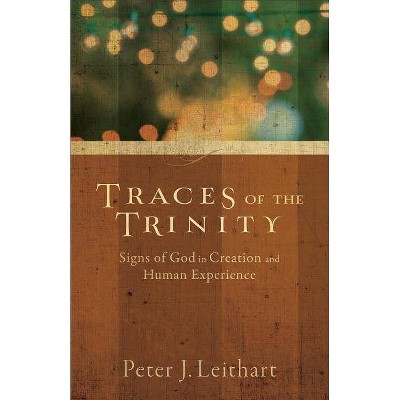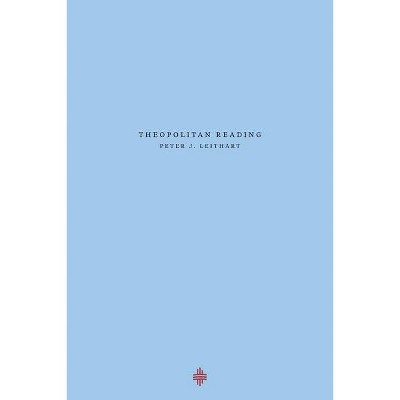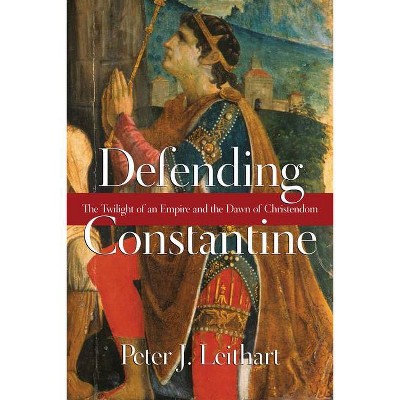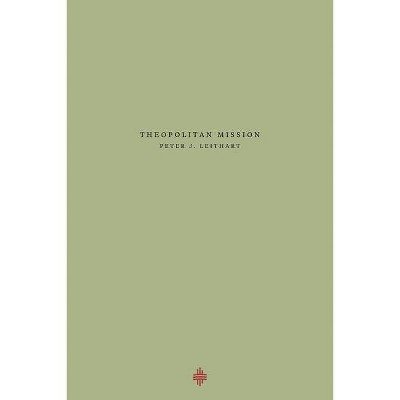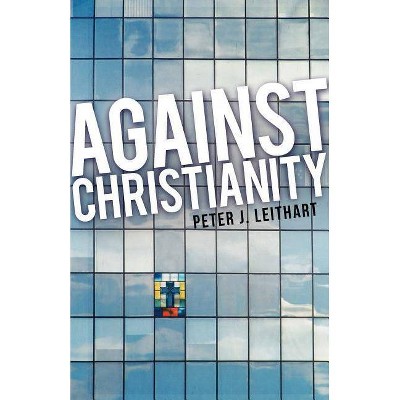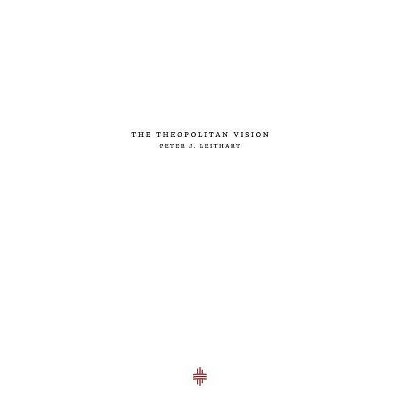Solomon Among the Postmoderns - by Peter J Leithart (Paperback)
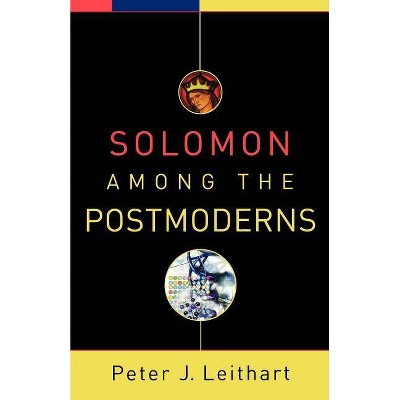
Similar Products
Products of same category from the store
AllProduct info
<p/><br></br><p><b> About the Book </b></p></br></br>The author of "A House for My Name" proposes the Book of Ecclesiastes as an interpretive framework for readers wanting to understand and critique postmodernism.<p/><br></br><p><b> Book Synopsis </b></p></br></br>In Ecclesiastes, Solomon states that "all is vapor" and describes humans as trying to "shepherd the wind." In <i>Solomon among the Postmoderns</i>, author Peter J. Leithart uses these claims, as well as the entire book of Ecclesiastes, to show how Solomon resonated with postmodernism. <br/><br/>Exploring the strengths and weaknesses of postmodernism, Leithart shows how the theory reflects an important biblical theme: the elusiveness and instability of the world. But he goes on to show that biblical faith takes us beyond cynicism and despair. <i>Solomon among the Postmoderns</i> will appeal to academics and laypeople alike seeking a biblical view of postmodernism.<p/><br></br><p><b> From the Back Cover </b></p></br></br>Solomon's words from a famous passage of Ecclesiastes have been translated, "Vanity of vanities, all is vanity." In <i>Solomon among the Postmoderns</i>, Peter Leithart says those words are better translated "Vapor of vapors, all is vapor," emphasizing that human life is fleeting. He uses this theme, as well as the entire book of Ecclesiastes, to indicate how Solomon resonated with the themes of today's postmodernism.<br/><br/>"Classic Leithart: learned, witty, and readable, <i>Solomon among the Postmoderns</i> guides us toward a sympathetic and faithful engagement with our critical, protean, and vaporous times."--<b>R. R. Reno</b>, Creighton University<br/><br/>"Here is a vivacious account of postmodern culture from a true Renaissance man. With characteristic verve, Leithart deftly narrates the postmodern critique of modernity--without the typical fixation on epistemology and questions of knowledge. But the story doesn't end on the postmodern bandwagon; rather, Leithart pushes further to show that the postmodern critique of idolatry still fails to yield wisdom. In the wake of Derrida and Foucault, we still find ourselves waiting not for Godot or St. Benedict, but Solomon. Amidst the ruins of modernity, this book is an invitation to feast in the temple."--<b>James K.A. Smith</b>, associate professor of philosophy, Calvin College and author of <i>Who's Afraid of Postmodernism? Taking Derrida, Lyotard and Foucault to Church<br/><br/></i>"Peter Leithart's <i>Solomon among the Postmoderns</i> is welcome evidence of a maturing evaluation of postmodernism in Christian circles that neither lionizes nor demonizes. Engaging in conversation rather than caricature, the author takes his interlocutors seriously precisely because he is so confident in the power of the biblical narrative to pull down all of our towers of Babel, whatever we call them. For those weary of wholesale denunciations or wholesale endorsements of postmodernism, this patient, well-informed and well-written essay in godly wisdom will illumine and inspire."--<b>Michael Horton</b>, Westminster Seminary<p/><br></br><p><b> About the Author </b></p></br></br><b>Peter J. Leithart</b> (PhD, University of Cambridge) is senior fellow of theology and literature at New St. Andrews College and pastor of Trinity Reformed Church in Moscow, Idaho. He is the author of numerous books, including <i>A House for My Name: A Survey of the Old Testament, Against Christianity</i>, and <i>1 & 2 Kings</i> in the Brazos Theological Commentary on the Bible. He is also a contributing editor for <i>Touchstone</i>.
Price History
Price Archive shows prices from various stores, lets you see history and find the cheapest. There is no actual sale on the website. For all support, inquiry and suggestion messages communication@pricearchive.us


